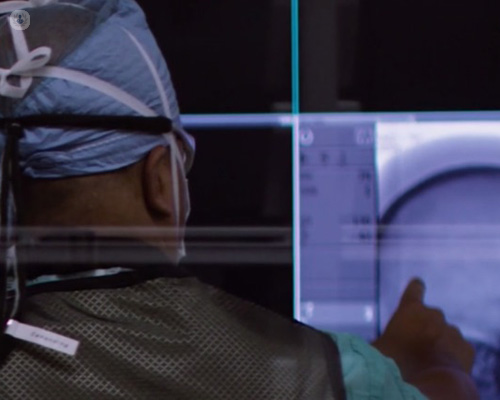

What is interventional oncology?
Interventional oncology is the subspecialty field of interventional radiology which covers the diagnosis and treatment of cancer or cancer-related conditions. Interventional oncology diagnoses and treats these conditions using a combination of diagnostic imaging and minimally-invasive techniques.

Which subspecialties are included under interventional oncology?
Interventional oncology is an area of specialist interest in interventional radiology, which is a recognised GMC sub-specialty of clinical radiology.
What conditions does an interventional oncologist treat?
An interventional oncologist can diagnose and treat cancer and cancer-related conditions, particularly primary cancers and metastatic cancers (which have spread to other parts of the body. Certain types include:
Interventional oncologists use diagnostic techniques such as fine needle aspiration, and vacuum-assisted biopsy in order to assess and diagnose tissues of the body or the affected organ. Treatment techniques include ablation (removal of part of a tissue), embolisation (blocking blood vessels), and electromagnetic energy techniques. Many treatments that interventional radiologists and oncologists perform are now done as day-case procedures, which means they are minimally-invasive and support a faster recovery, less scarring, and less pain.
When should I visit an interventional oncologist?
You may be referred to an interventional oncologist through your GP to either have a suspected cancer diagnosed or in order for cancer to be treated. You also may be referred by a specialist oncologist, who is able to diagnose and treat cancers but cannot perform minimally-invasive procedures. Interventional oncologists work closely with other doctors such as medical and clinical oncologists, surgeons, pulmonologists, and other specialists as part of multidisciplinary care.
